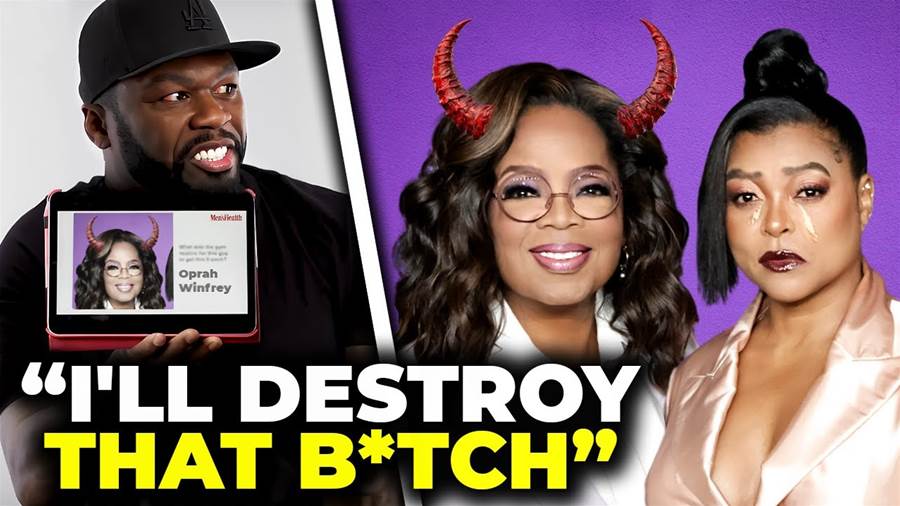It all started with a seemingly ordinary day that took an unexpected turn when the renowned rapper, 50 Cent, took to social media to express his disapproval of iconic talk show host and media tycoon, Oprah Winfrey.
His words were laced with a bitter accusation – the exploitation of black actors for personal gain, hinting at a scenario where Winfrey was casting the actors only when it served her purpose, and leaving them devoid of the deserved support and recognition.

As he navigated through this cyber jungle, 50 Cent didn’t mince his words. He spun a tale where Winfrey, whom he alleged to be only looking out for herself, had supposedly deserted her fellow actor, Russell Simmons. Now, Simmons is no stranger to controversy – his name has been linked with alleged sexual misconduct, and this time, it seemed to have lost him Winfrey’s backing, or so 50 Cent claimed.
This ‘call-out’ from 50 Cent comes during a period of intensified focus on the behavior of those wielding power, especially in the glitzy, image-focused world of entertainment. The spotlight is fixated on how these elite figures interact with and treat the marginalized communities of this industry.
Winfrey, undeterred and silent amidst this furor, has yet to respond to 50 Cent’s explosive allegations.
Yet, his bold critique has not just sparked controversy, but ignited a much larger dialogue about representation, fairness, and exploitation within the entertainment industry. His story stands as a testament that every voice matters – a lone voice can indeed trigger a wave of change if it echoes the right concerns.





